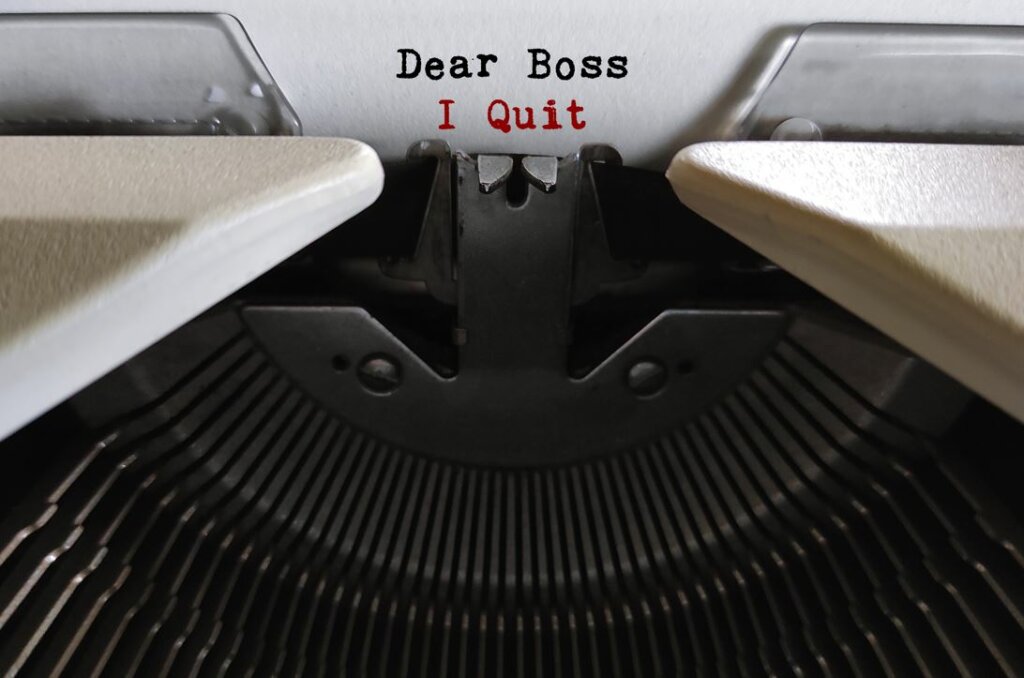The Global Pandemic has created a new attitude toward work. How? The digitization of the workplace has sparked change in employee mindsets and how they look for and derive value from a current or potential employer. This has caused what LinkedIn is calling a ‘time of unprecedented job switching globally’ where employers are experiencing what experts […]
The Global Pandemic has created a new attitude toward work. How? The digitization of the workplace has sparked change in employee mindsets and how they look for and derive value from a current or potential employer. This has caused what LinkedIn is calling a ‘time of unprecedented job switching globally’ where employers are experiencing what experts are calling the Great Resignation or the Great Reshuffle. In fact, over the last quarter, global job transitions were up by 28%, and when looking at this from a sales only perspective, job transitions were up by 39%.
Why exactly is this happening? Employees are insisting on higher pay and benefits, more flexibility in their day-to-day, a more inclusive and equitable culture and better treatment from their employers. And, if their current employer isn’t able to meet these demands, they simply look elsewhere. Not to mention, sales is the second most in demand job in the world today and with the supply of talent being much LOWER than the demand, it makes it relatively easy to make a switch.
As an SDR, you might be wondering how this will affect your career path and whether or not you should join the Great Reshuffle. Lucky for you, we’re here to help! Navigating your career as an SDR can be tricky. Outlined below are the questions you should be asking yourself about whether to stay with your current employer or not, and what you should do if you decide to stay or leave.
Navigating your career as an SDR: Should I stay or should I go?

It’s clear that more people are leaving their jobs than ever before. Some are simply going to a new company, others are changing career paths, and some are quitting their jobs altogether. With it being a hot candidate market for SDRs, you may be wondering whether or not you should leave your job too. Deciding to quit your job and leave for another is a pivotal moment in your career path and it should not be taken lightly. With that in mind, here are some things you should consider before making a move:
1. Is this the right space and company for me?
- Do you feel passionate about your role and what you are selling?
- Do you enjoy going to work everyday?
- Do you feel as though you are utilizing your skills?
- Is your company in a growing sector and is it doing well in its category?
- Are there opportunities for growth? As an SDR, your goal is to get to one of two career paths: to become a full Sales-cycle rep (Account Executive) or to become a Sales Team Lead.
- Does your employer cultivate diversity, equity and inclusion in the workplace?
2. Am I being equipped for success?
- Does your employer have a good sales enablement and training program in place?
- Is your manager coaching you and helping you grow?
3. Am I being fairly compensated for my work?
- Do you have a good compensation and benefits package?
- Does your employer match your needs in terms of work-life balance and work flexibility?
If you find yourself answering no to many of these questions, it may be time to reconsider your options and look elsewhere. After all, it is a candidate’s market so there is no better time than now to re-evaluate your options.
You’ve decided to leave. Now what?

We shared the above questions so you could evaluate your current employment situation. We said it before, and we’ll say it again: if you found yourself answering no to many of them, it’s likely time to leave. So, what’s next?
1. It’s time to get noticed and interviewed for another great sales role.
To get noticed and interviewed by potential employers, you want to ensure that you can be easily found on LinkedIn and that your resume/profile is as up to date as possible. Why? We’re going to let you in on a little secret: professional talent teams use a tool called LinkedIn Recruiter. LinkedIn Recruiter helps talent professionals find, connect with and manage their job search process all in one place. This means that your LinkedIn profile (and resume) needs to accurately reflect your location, job function and title, industry, experience, accomplishments, education and skills, to have the best chance of being found. In addition to this, your resume and LinkedIn profile need to highlight the scope of your SDR role and have metrics that highlight your measured success.
2. As a salesperson you truly need to treat your job search like a sales process.
First, you need to create a pipeline of jobs that you would like to apply and interview for. Typically, if you are a great candidate, you will get 1 job offer for every 5 interviews, so you want to ensure your pipeline works in your favour. Secondly, you can’t only rely on the system. Hiring Managers, more often than not, are overwhelmed by applications, so yours can be easily missed. Don’t be afraid to send a video or email introducing yourself and that you’ve applied for the role.
Once you’ve landed an interview, you’ll want to gear your sales touches (resume, interview content) to demonstrate that your skills/experience will alleviate the challenge the potential employer is trying to solve. Finally, you’ll need to ensure that you have done everything in your power to maximize your chances of moving on to the next stage of the interview process. It is extremely important to send a follow-up email showing the interviewer that you respect and value their time, and are excited about the position.
You’ve decided to stay. Now what?

On the flip side, you may have found yourself answering yes to most of the questions outlined above. That’s great! You work for an employer that is invested in your training, development and growth. With that, you’re likely wondering, is now the right time to ask for a raise or promotion? According to Forbes, there is no better time than now to ask for a raise or promotion as employees have more power than ever before. Employee turnover is a huge cost to an employer and the last thing they will want to do is lose you to the Great Reshuffle. That said, there are still a few factors that you’ll want to consider before asking to improve your financial situation.
First, you should consider how long you’ve been with your current employer. Typically, organizations do not consider giving an SDR a raise or promotion unless they’ve been employed for 6-18 months. Second, you should consider your performance. Are you achieving or over achieving your quota? Have you taken on any other meaningful projects that show you have gone above and beyond? Finally, you should consider whether or not you feel confident in asking for a raise or promotion. The right time to ask is when you feel ready and confident in your ability to get what you want.
Now, it’s over to you. We’ve provided you with the core concepts to consider when navigating your SDR career path in today’s rapidly changing sales landscape. For the love of sales.


